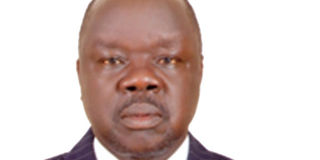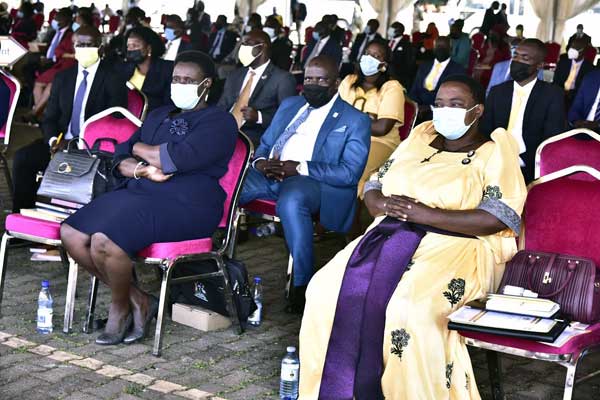How President Museveni’s ‘fishermen and women’ failed in ethical conduct

Mr Fabiano Okware
What you need to know:
Ugandans might require you to go back to the “lake”, searching for fisherwomen and men with integrity, business acumen.
Since February, the media has been awash with the Karamoja iron sheets saga. President Museveni expressed his displeasure over the manner in which ministers shared iron sheets and relief meant for the vulnerable Karimojong. Remember these are the very fisherwomen/men the President had hooked from the fish pond to help him in the transformation drive.
In the eyes of society, these “fisherwomen/men” (Ministers) are held with esteem at managerial positions in government and therefore should have exercised good managerial practices. Most importantly, being a government business of delivering services to society, they should have displayed the highest level of ethical standards in business conduct! There are a few ethical standards, which can guide ethical decision making. The utilitarian approach says that when choosing one ethical action over another, we should select the one that does the most good and least harm in the eyes of society.
More so, Nash (1981) prescribed the Twelve Questions Model as a simple approach to help business people in ethical decision making. The model asks people to reframe their perspective on ethical decision making, which can be helpful in looking at ethical choices from all angles. To those who took the iron sheets for their personal use, if they had knowledge of Nash’s question four, “To whom and what do you give your loyalties as a person and as a member of the government?” Such a question could have refrained them from actions depicting greed .
In my earlier suggested submission, in line with the President’s view, that government officials at the centre of government business (Permanent secretaries and other accounting officers) should, apart from their first degree, possess business acumen by acquiring at least a Masters degree in Business Administration. Although, it is also true that some of them have this knowledge, they would prefer to enjoy the red tape decision making in the public sector (government) to the disadvantage of the beneficiaries.
As it stands, the government officials are running government business like their own enterprises with a lot of impunity; officials unable to respect police sermons and using public resources in their personal businesses and others going into hiding, attempting to flee the country to avoid arrest. The country is in a drive to socio-economic transformation and these are the very leaders and managers to be at the forefront, drumming support from society to take the economy to a higher level. However, as President Museveni hinted, such actions of the ministers are synonymous with political corruption and cheap popularity, hence subversive under the National Resistance code which must go with punishment.
The actions taken by courts of law and police so far, are bearing fruit to crack down fisherwomen and men with their subversive intentions to fail the socio-economic transformation process.
What remains to be seen is the government’s concerted effort not only to minimize but stamp out corruption.
All in all, the government’s move in bringing culprits into book is applauded in the eyes of society. These are the very law makers and it is a known fact that no one is above the law. Let them serve their sentences if proved guilty so that others can learn lessons. The government should walk the talk on corruption. Unless fought decisively, the country’s dream towards socio-economic transformation will not be realized.
To the President, revisit your stern warning to the courts on bail. According to the laws of the country, if the president has a prerogative on the death penalty, he should also have the same powers to deny court bail to persons of capital offences such as diversion of public funds and property meant for the survival, growth, development and prosperity of citizens of the country.
Ugandans might require you to go back to the “lake”, searching for fisherwomen and men with integrity, business acumen to support you in the socio-economic transformation and meeting the aspirations of the vision 2040.
Dr Fabiano Okware is an Independent Business and Management Consultant. [email protected]




